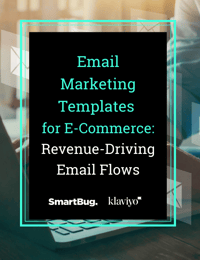
How to Make Your E-Commerce Brand Retail-Ready
May 23, 2022
As an e-commerce seller, do you find it difficult to get your products on the shelves of retail stores? Do you know the requirements different retailers have for brands looking to sell in their stores? Do you even know the right way to approach these retailers?
The end goal for brick-and-mortar businesses and e-commerce brands are the same: to deliver products to the target audience. But there are some definite differences between the two when it comes to starting and running your business. If you want to make your e-commerce brand retail-ready, there are some steps you need to take.
In this article, we’re discussing things you should take into consideration when preparing your e-commerce brand for retail storefronts. We’re also hearing some lessons learned from Allen Iov, the Founder and CEO of LumieWorld, a company focused on creating innovative products to help families sleep.
The Importance of Product Insurance
Have you taken out product insurance for your business? Do you know what your preferred retailer requires in terms of insurance? And, maybe most importantly, are you in a position to get it on time?
Each retailer has different insurance requirements, and it’s your responsibility to find out what they need. Why? Because most, if not all of them, want to work with brands that have insured their products.
As an e-commerce seller, you may land a deal with a large company, but if you don’t have the right insurance, you may lose your chances of working with the company—and get dropped. Allen Iov learned this the hard way and ended up losing a great deal because he couldn’t find the right insurer in time.
Why E-Commerce Business Owners Should Delegate Work
As a new e-commerce seller, the thought of delegating your work to other people can be daunting. You may be afraid that they will make mistakes and lead to loss of money or other resources, and so you decide to do everything on your own.
This, according to Allen Iov, is not advisable. He faced the same challenge and although he thought that it would be an expensive venture, he realized that the solution was to create his own systems and delegate to the right people.
As an e-commerce business owner, there’s only so much you can do. Dealing with all the suppliers, retailers, manufacturers, and reps is impossible if you do everything on your own, and you may never sleep again. By learning how to delegate and outsource tasks where necessary, you run the best chances of running your business efficiently and effectively—and with a solid night’s sleep.
How to Create an Institutional E-Commerce Website
If you’re a large e-commerce brand working with other retailers, one way to promote your business is through an institutional website. An institutional website will establish your authority and help show that you are ready for retail.
So what are some strategies for implementing this? There are a few. You can:
- Display a 1-800 phone number instead of a personal number on your website
- Provide information on how to become a vendor or partner for your business
- Include a store locator
As an e-commerce brand, getting your product onto retail shelves is a challenge, but with the right strategies and the right people supporting you, it’s an achievable dream. Make the most out of your existing customer list by downloading our Email Marketing Templates for E-Commerce, and update your strategy to reflect current best practices.
Allen Iov is the Founder and CEO of LumieWorld, a company focused on creating innovative products to help families sleep. Their products are designed to guide children with security and support as they learn and adapt to their sleeping routines. Allen has grown LumieWorld into a seven-figure multi-product brand that can be found in over 1,000 brick and mortar stores including Target, Home Depot, Nordstrom, and Crate & Barrel.

About the author
Ryan O’Connor was formerly SmartBug’s Director of E-commerce Growth, product manager, and sales director. He enjoys helping readers learn how to solve big business challenges through consumer psychology within the constantly evolving e-commerce landscape. Over the past 10 years, Ryan has helped 1000s of DTC brands navigate challenges to grow fast through intelligent marketing. He’s not afraid to get his hands dirty, having launched his own e-commerce stores from the ground up. Read more articles by Ryan O’Connor.








